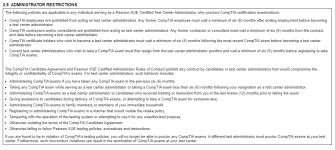1. Personally, I've seen boot camps work for students that already have a good amount of experience in the subject matter already - they're just there to go over the high points ahead of an exam. I've seen them fail for students who 1) do not have any experience in the subject matter or even 2) students who do not have the prerequisite knowledge to be successful. I do not believe a 40 hour time frame is enough to be testable in most cases.
Boot-camps do have the benefit of the 'get-em-in-get-em-out' model for making big profits, if that's the angle, on the desperation of students wanting to get into the field fast. Good marketing and some creative skewing of the performance numbers and sure, the seats will fill. But I've seen bootcampy schools come and go pretty fast - mostly for making lofty marketing promises that their educators can't keep, paying their instructors a pittance or not paying them at all, or ducking behind legalese to avoid any culpability when students cannot pass an exam.
In short, for my part of it, I have little respect for these kinds of institutions - they're less 'flying high' and more like 'fly by night'.
2. Pearson VUE - This is a rather extensive question. Essentially if you proctor an exam for CompTIA, the rules do not allow you to test for any certification for six months prior to becoming a proctor and wait six months after being a proctor before you can cert.
To proctor an exam, you must go through the accreditation process of creating a test center, even if it's 1-2 stations. The technical and administrative requirements for it are pretty involved. You will want to connect with PearsonVUE on the process and allocate yourself the time to get it right. I set up an eight station center back in the day and it took me about 2-3 months to get everything ready to go. There were a LOT of details to manage.
3. Success rates are very hard to determine. It really depends on the crop of students you get. If they are neophyte students, I would put that rate at below 20%. Obviously, the more experienced they are, the better off the rate will be.
While anecdotal, I ran a six week program, training students at 20 hours per week for a cert exam. I saw high success rates of those that took the exam, but very low confidence rates to actually take the exam.
4. Bootcamps have traditionally been eight hours, with a 1 hour lunch in the middle of the day and break times as needed, without it being excessive.
/r

